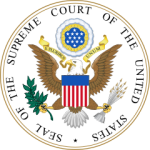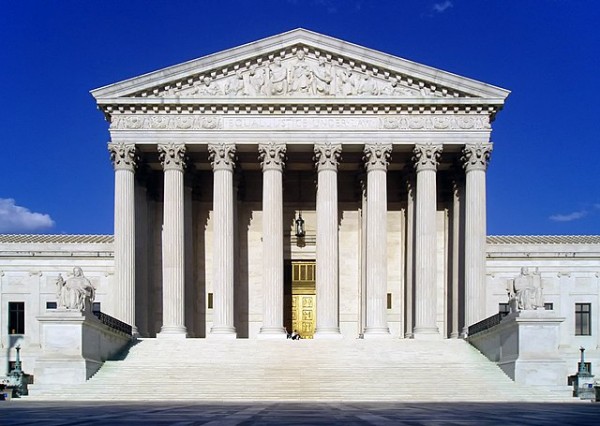Content liability: Big Tech squares up to Uncle Sam
 Following the announcement anti-trust action by the United States Department of Justice along with the Attorneys General of California, Colorado, Connecticut, New Jersey, New York, Rhode Island, Tennessee, and Virginia against Google, Meta (owners of Facebook and Instagram), Microsoft and Twitter have all made statements seeking to defend their actions.
Following the announcement anti-trust action by the United States Department of Justice along with the Attorneys General of California, Colorado, Connecticut, New Jersey, New York, Rhode Island, Tennessee, and Virginia against Google, Meta (owners of Facebook and Instagram), Microsoft and Twitter have all made statements seeking to defend their actions.
In their legal opinions, the big US tech giants, including Microsoft, Meta and Twitter, are warning the Supreme Court against amending Section 230 of the Communications Decency Act (CDA). This would enable actions against content recommendation algorithms, French IT news site Le Monde Informatique reports.
One week after Google’s filing of a defence statement with the US Supreme Court warning that amending Section 230 of the Communications Decency Act (CDA) “would upend the internet“, several companies including Twitter, Meta and Microsoft, have filed their own legal opinions. They support Google’s argument that a restriction of the law could have disastrous consequences for the content editors. By virtue of the 1996 CDA, the companies are shielded from liability for content posted by their users, including comments, criticism and advertising.

Image courtesy of Wikimedia Commons and UpstateNYer
However, the Supreme Court has been asked to examine whether Section 230 was still pertinent and appropriate, given that it was promulgated before the internet became part of everyday life. The law was subject to a minute before the suit filed by the family of Nohemi Gonzalez, a 23 year-pld US citizen killed in Paris during the 13th November 2015 terrorist attacks claimed by ISIS. The Gonzalez family asserts that the algorithms should be regarded as editorial content not covered by the immunity from liability granted by Section 230 and thus Google’s YouTube subsidiary has violated the US Anti-Terrorism Act (ATA) when its algorithms have recommended ISIS-linked content to users. The Supreme Court is set to hear oral arguments in the case on 21st February next.
Criticisms of the protections of Section 230 for websites
Both Democratic and Republican members of Congress have criticised the protections provided for by the law. The Republicans believe that those in respect of liability make websites take partial decisions regarding content removal, whilst the Democrats would like the same sites to take more responsibility as regards moderation. In a statement President Biden has stated that his administration would support the position that Section 230 protections should not apply to recommendation algorithms. In its petition of 19th January, Microsoft asserts that if the Supreme Court makes amendments to Section 230, it would “strip these digital publishing decisions suit—and it would do so in illogical ways that are inconsistent with how algorithms actually work.“.
The company added that any decision aimed at restricting the law “thereby expose interactive computer services to liability for publishing content to users whenever a plaintiff could craft a theory that sharing the content is somehow harmful“. In its own petition Meta stated that the plaintiffs’ argument is “deeply flawed from a legal point of view”; by interpreting Section 230 as a means of protecting sites from liability for content posted by its users whilst removing protection from content “ignores the way in which the internet works“. The company continued by describing the plaintiffs’ position as “regrettable from a practical point of view” and by stating that a ruling in their favour would ultimately prompt “online services to remove important, provocative and controversial content on matters of general interest“.
Protection from liability essential for website operation according to Twitter
Twitter has said that the current interpretation of Section 230 “ensures that sites such as Twitter and YouTube can work in spite of the unfathomable amount of information they make available and the potential liability that might result from this“. Since Twitter’s acquisition by Elon Musk, the site has been criticised for having reinstated the accounts of people it previously banned, such as disgraced former president Donald Trump or alpha male par excellence and all-round amateur human being Andrew Tate who is currently under investigation in Romania for alleged human trafficking.
However, the review of several other high-profile cases will have to take place before the law is changed. Last week the Supreme Court was set to discuss its jurisdiction in two cases that challenge Texas and Florida laws prohibiting online platforms from removing certain political content. In addition, a Twitter vs. Taamneh case, which has many similarities with the Gonzalez vs. Google case, is due to oral pleadings on 2nd February. In this case Twitter, Facebook and YouTube are accused of having aided and abetted another attack claimed by Islamic State.